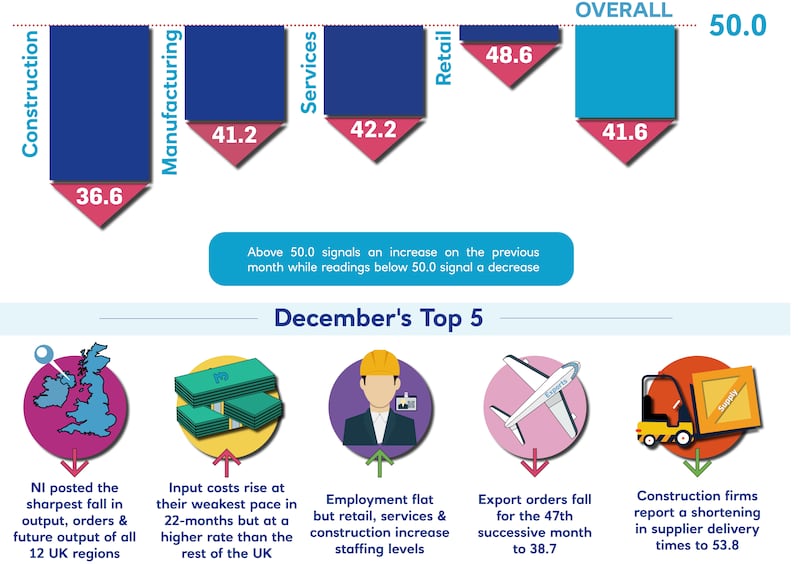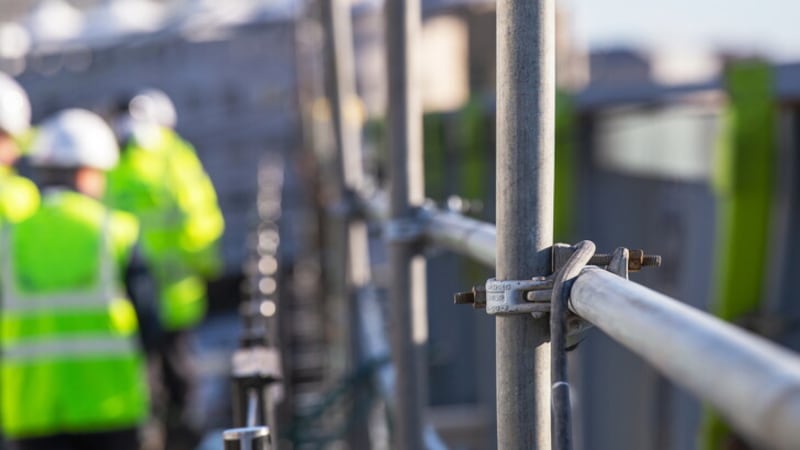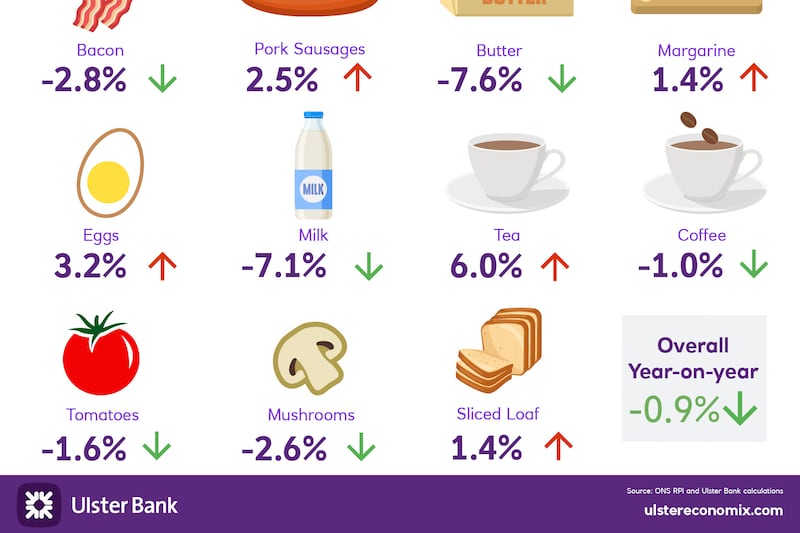ACTIVITY in the north’s private sector fell sharply during December, a new survey from Ulster Bank suggests.
The lender’s monthly purchasing managers’ index (PMI) indicated the decline in business output was the steepest in a decade outside of lockdowns, with the cost of living crisis a key factor.
But there was some evidence the inflation crisis may have passed its peak.
It comes just days after the Northern Ireland Statistics and Research Agency (Nisra) declared the north officially entered a technical recession last summer. It followed two consecutive contractions in the economy across the second and third quarters of 2022.
And while the Office of National Statistics (ONS) said the UK economy as a whole actually grew marginally in November, Ulster Bank’s PMI suggests Northern Ireland’s private sector fell well behind Britain last month.
The survey, which is based on the experiences of 200 businesses across the construction, manufacturing, retail and services sectors, is considered a reliable bellwether for the state of the Northern Ireland economy.
It suggests the north’s building firms had a torrid December.
Despite Nisra’s official government data showing Northern Ireland’s public sector actually grew during the third quarter of last year, a slump in the private sector, and in construction particularly, resulted in the economy as a whole contracting.
Ulster University Business School economist, Dr Esmond Birnie said the report from Nisra again raised the issue of the apparent imbalance in the north’s economy between the public and private sectors.
“In terms of questions of long term sustainability, it probably is a cause for concern that whatever growth is happening at the moment is concentrated in the public sector,” he said.
Worryingly, Ulster Bank’s PMI suggests the slump in construction continued into the fourth quarter.
“All four sectors posted declines in output and orders although retail, services and construction firms did increase their staffing levels,” said the bank’s chief economist Richard Ramsey.
Manufacturing was the only sector to report a decrease in staffing levels. That left employment levels unchanged as a whole in the private sector, ending a 21-month run of job creation recorded by the index.

But has the inflation crisis peaked in Northern Ireland? December’s PMI suggests it has, at least in the private sector.
“The good news is that inflationary pressures moderated with firms reporting the weakest rise in input costs in 22 months,” said Mr Ramsey.
“As a result, firms raised their prices at their slowest pace in almost two years. But these price rises still exceed anything that occurred in the pre-pandemic era.”
That was reflected in sentiment, with the survey showing pessimism within the business community receding during December.
And while expectations for the year ahead are low, Richard Ramsey said we could see the converse of last year with expectations being exceeded in 2023.







